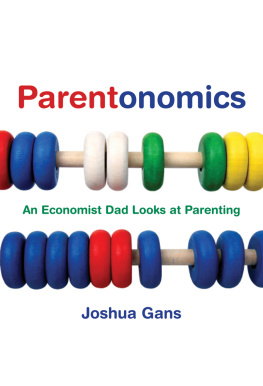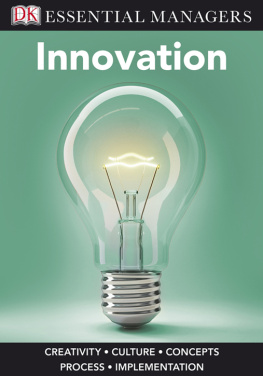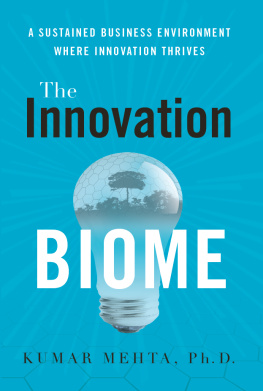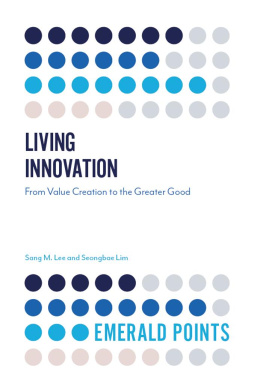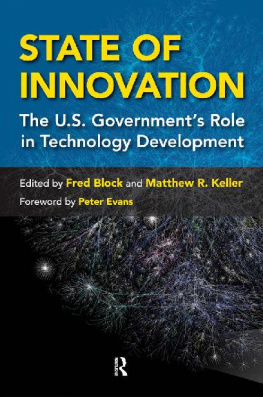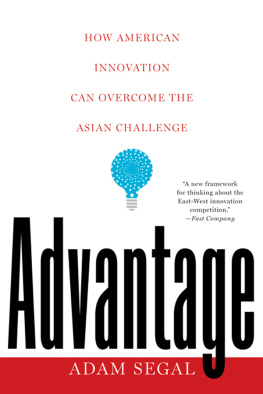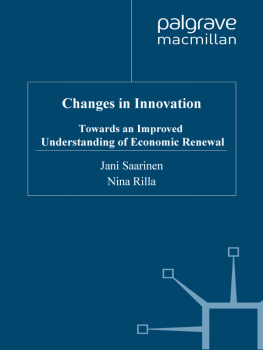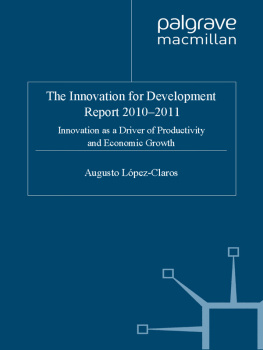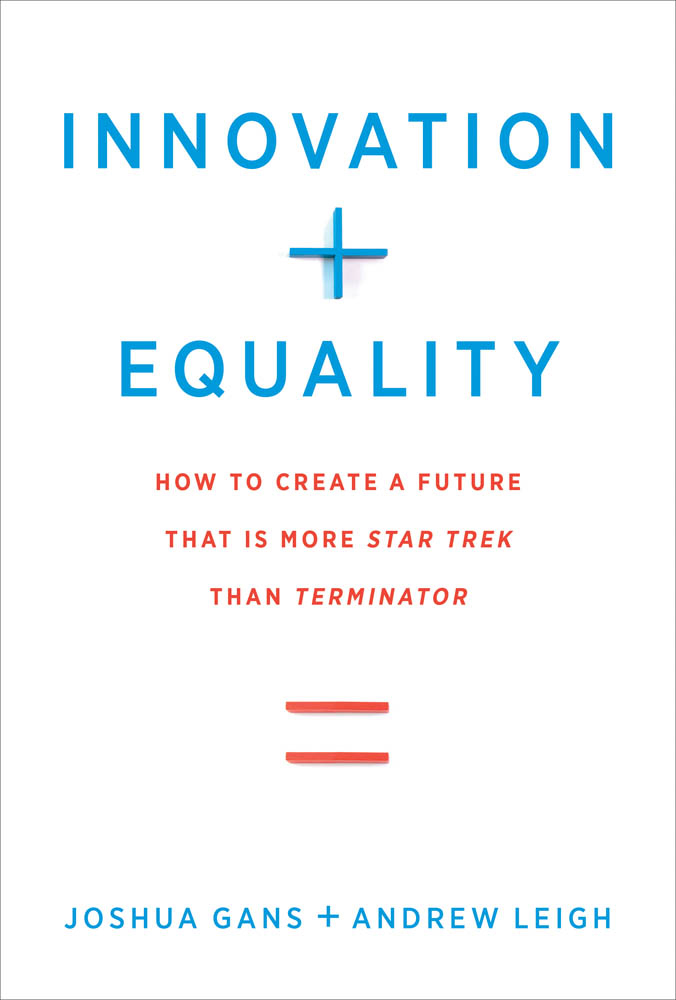Contents
Guide
Pagebreaks of the print version
Innovation + Equality
How to Create a Future That Is MoreStar TrekThanTerminator
Joshua Gans and Andrew Leigh
Foreword by Lawrence H. Summers
The MIT Press
Cambridge, Massachusetts
London, England
2019 Joshua Samuel Gans and Andrew Keith Leigh
All rights reserved. No part of this book may be reproduced in any form by any electronic or mechanical means (including photocopying, recording, or information storage and retrieval) without permission in writing from the publisher.
This book was set in Stone Serif and Stone Sans by Westchester Publishing Services. Printed and bound in the United States of America.
Library of Congress Cataloging-in-Publication Data
Names: Gans, Joshua, 1968- author. | Leigh, Andrew, 1972- author.
Title: Innovation + equality : how to create a future that is more star trek than terminator / Joshua Gans and Andrew Leigh ; foreword by Lawrence H. Summers.
Other titles: Innovation plus equality
Description: Cambridge, MA : MIT Press, [2019] | Includes bibliographical references and index.
Identifiers: LCCN 2019005650 | ISBN 9780262043229 (hardcover : alk. paper)
Subjects: LCSH: Technological innovationsEconomic aspectsUnited States. | InequalityUnited States.
Classification: LCC HC110.T4 G36 2019 | DDC 338/.0640973--dc23
LC record available at https://lccn.loc.gov/2019005650
d_r0
Contents
Foreword
Lawrence H. Summers
The Industrial Revolution is rightly regarded as a major watershed in the history of humanity. After thousands of years when economic change was so slow as not to be noticeable within a single human life span, and where periods of regress were about as likely as periods of progress, all of a sudden enduring progress became the expectation.
Average living standards, which on the most generous of estimates rose by 50 percent from the time of Pericles in Athens to 1800 in London, started rising by 1 percent a year or even a bit more. Everything changed from the role of cities, to the nature of international relations, to relations between the genders, to demands on government, to the organization of business, to the meaning of property.
Taking a long enough view, the Industrial Revolution was a wonderful thing. People today live longer, more comfortably, and more fulfilling lives than they did two centuries ago. From child labor to surgery without anesthesia to slavery practices that were once seen as normal, today are seen in the industrial world as unthinkably barbaric.
But the long enough view speaks little to those whose wages fell when new spinning technologies were introduced and did not find new trades. It neglects the fact that the institutions we take for granted today, like government provided safety nets and universal education did not spring into being automatically, but resulted from a combination of moral necessity, aggressive and intelligent advocacy and political action. And it fails to reckon with the dramatic changes in the global order that took place in the wake of the industrial Revolution that culminated in arguably the two greatest manmade disasters in historythe two world wars.
I raise the Industrial Revolution because the book before us might be thought of as a kind of prehistory of the current and ongoing Knowledge Revolution, an event that I suspect historians in 2400 (if there still are historians in 2400) will see as being every bit as important as the Industrial Revolution. The Knowledge Revolution has likely been under way for several decades now as Information Technology has been transforming almost every aspect of economic life.
In some respects it has accelerated in the last decade. I often make this point to audiences by holding up my iPhone and observing: This $700 device has 1,000 times the computing power that put a man on the moon. It has more computing power than the most powerful computer on earth did when Bill Clinton was elected president. It provides more access to more knowledge than a Harvard University library card even though Harvard has one of the great libraries in the world. And it provides for more connectivity to more people more easily than the White House communications system could provide Lyndon B. Johnson with when he was the most powerful man on Earth. And very soon there will be more iPhones on Earth than there are adults.
The iPhone is about to be turbocharged by the addition of artificial intelligence. Speech recognition and facial recognition are not perfect, but they are on the verge of being better at these tasks than are humans. As I write this, it has just been demonstrated that AI can do a better job diagnosing eye disease from pictures than the best ophthalmologists. Already machines have produced poems, prints, and pieces of music that sophisticates cannot distinguish from those produced by real artists.
As with the Industrial Revolution, there is staggering potential for good in the Knowledge Revolution. But there will surely be large human costs along the way and there will be unexpected side effects that may have dire political consequences. It is the task of scholars and policy makers to maximize the benefits and minimize the adverse impacts.
This requires, as economists like me tend to emphasize, recognizing trade-offs and seeing them clearly. Probably more important, as the best political leaders always intuit and as the authors of this important book highlight, is to identify ways of cutting across trade-offs. This means finding ways of increasing efficiency and equity, of promoting both innovation for the society and security for the individual, of accelerating change while at the same time promoting enduring values.
In uncharted territory of this kind, there are two kinds of peoplethose who do not know they do not know, and those who do know they do not know. It is a great virtue of the present volume that its authors are squarely in the second camp. This leads them to present state of the art thinking on both sides of all the important questions, and to suggest policy approaches that are robust and so will work out well even when their premises turn out to have been off.
I concur with the sentiment often misattributed to Winston Churchill: the United States always does the right thing, but only after exhausting the alternatives. We are moving through many alternatives to the right thing at present. It is a scary time for us and for the world.
But we as a nation will come back just as we did when the Depression caused us to doubt the viability of capitalism, just as we did when Sputnik caused us to believe we would fall behind the Russians, just as we did when President Carter declared a crisis of the national spirit, just as we did when there was near universal agreement that the Cold War was over and Japan has won.
The wisdom in this book about the shape of the world we are entering and about how we can shape that world is profound. The more it is absorbed the sooner will come the day when our adjustment to the Knowledge Revolution will be seen as yet another demonstration of our countrys capacity for self-denying prophecies of doom.
Acknowledgments
Our thanks to Kevin Bryan, James Cham, Danny Gilligan, Nick Green, Richard Holden, Stephen King, Astrid Mastroni, Alex Tabarrok, and three anonymous referees for valuable comments on earlier drafts. At the MIT Press, Emily Taber provided superb editorial feedback.



